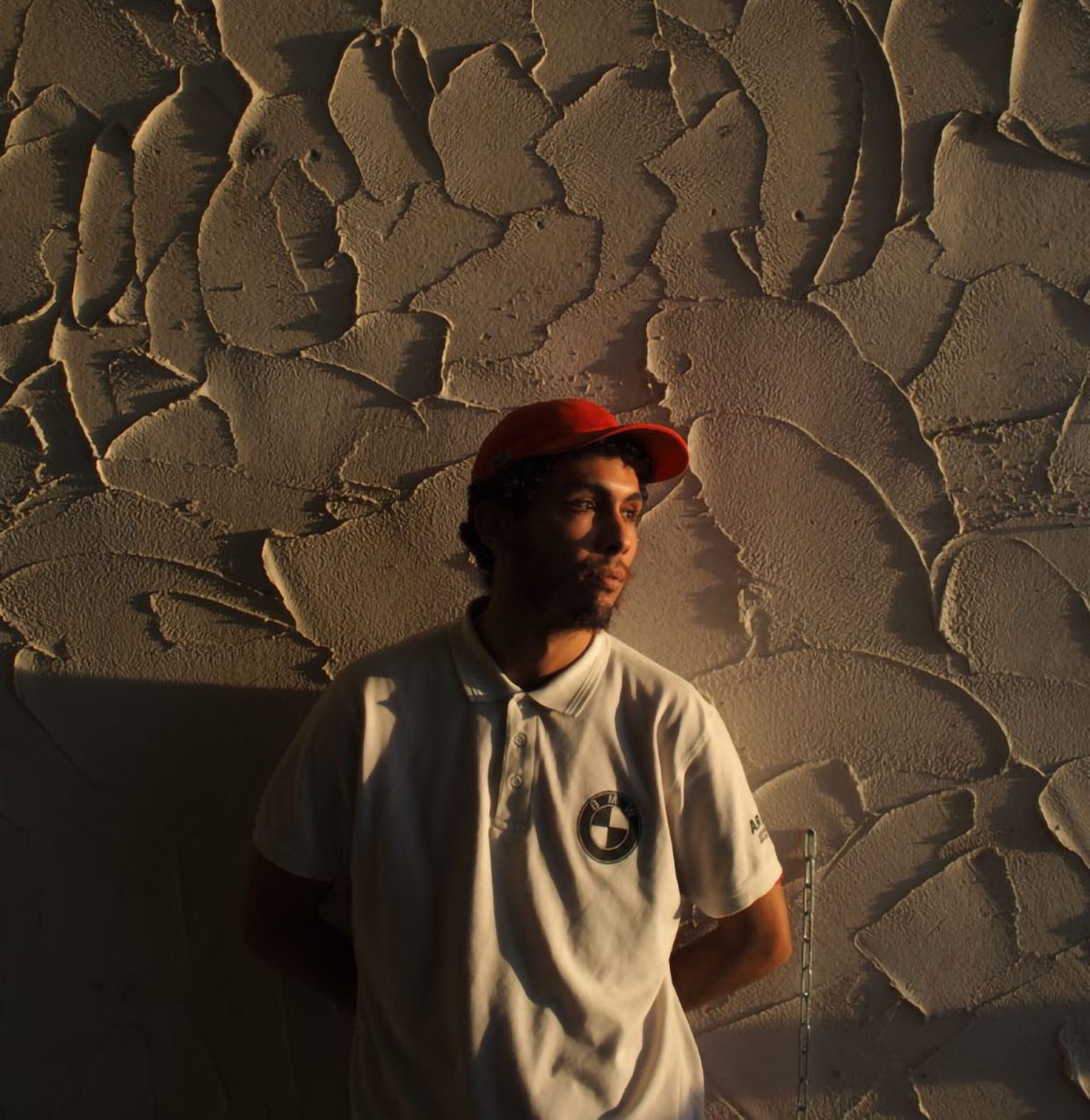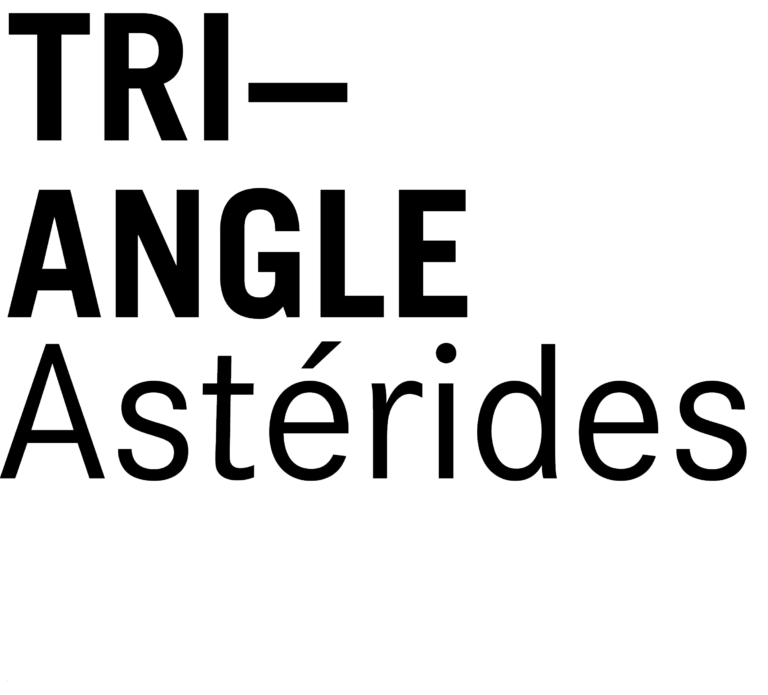Samir Laghouati-Rashwan
Artist
February-March 2026

- Visual Arts
- Houston
” Slowness as Resistance raises the question of slowness as a tool of cultural resistance through two distinct yet connected practices: DJ Screw’s chopped and screwed music and lowriding.”
Samir Laghouati-Rashwan’s practice unfolds through installations, videos, texts, and performative devices, exploring zones of friction between identity, collective memory, and social representations. Their work interrogates the implicit power relations embedded in dominant narratives, whether related to colonial history, migration, gender, or cultural structures of legitimacy.
They often center their approach around marginal figures, found objects, or reappropriated archives, manipulating them to bring forth counter-narratives. They construct spaces where tensions between presence and absence, visible and invisible, intimate and political become tangible.
Refusing fixed categories, their practice functions as an attempt to unlearn normative ways of seeing. It is driven by a desire for symbolic repair, but also by a subtle irony that unsettles conventional readings. Whether through discreet gestures or more confrontational staging, Laghouati-Rashwan offers fragile yet insistent forms of appearance, demanding the viewer’s attention and engagement.
Their approach thus situates itself within an aesthetic of gentle resistance.
Laghouati-Rashwan has exhibited and performed internationally in galleries and institutions such as P21 Gallery (London, UK), Les Urbaines (Lausanne, Switzerland), CAC Brétigny (Brétigny, France), Fondation Kadist (Paris, France), MEP (Paris), Magasins Généraux (Pantin, France), Rencontres d’Arles (Arles, France), Manifesta 13 Biennale (Marseille, France), Triangle-Astérides (Marseille, France), Art-O-Rama Fair (Marseille, France), Centre Photographique (Marseille), SISSI Club (Marseille, France), Usine C (Montreal, Canada), Theater Spektakel (Zurich, Switzerland), and NGBK (Berlin, Germany). They were nominated for the Friends of the Palais de Tokyo Prize in 2023, as well as at the Theater Spektakel Festival in Zurich for their performance On Vous Voit (2023). Their works are part of the CNAP collections.
“Slowness as Resistance” raises the question of slowness as a tool of cultural resistance through two distinct yet connected practices: DJ Screw’s chopped and screwed music and lowriding.
In a world structured by time, productivity, and visibility, slowing down becomes a political gesture. The project Slowness as Resistance explores slowness as a strategy of withdrawal, as a form of resistance to the imperatives of performance that permeate our bodies, our narratives, and our artistic practices.
This work draws on references from contemporary Black thought. Chopped and screwed serves as both an aesthetic and conceptual foundation. Kodwo Eshun speaks of slowness as a speculative technology of Black time, capable of altering perception and desynchronizing reality. Fred Moten, for his part, evokes the idea of non-performance: a way of inhabiting the margins, of creating without making oneself available for appropriation. This notion of active opacity, of existence in withdrawal, resonates with the fragmentary and reimagined narratives advanced by Saidiya Hartman, particularly in her practice of critical fabulation.
In Houston, I will explore the special collections at the University of Houston with Julie Grob, who has assembled documents related to the city’s hip-hop scene, with a particular focus on DJ Screw. At the same time, I plan to meet with artists who were close to Screw. I will then go out into the field to attend car shows and events organized along key city boulevards, as well as visit neighborhoods and sites that hold the history of Houston’s African American and Hispanic communities.
These back-and-forth movements between archival research and field encounters will serve as a foundation to deepen my reflections on slowness.
In partnership with

Triangle-Astérides
Triangle-Astérides is a center for contemporary art of national interest based in Marseilles at La Friche la Belle de Mai, a cultural cooperative located in a former tobacco factory, since 1994.
Triangle-Astérides articulates a rigorous program of exhibitions with research residencies for artists from international and French scenes outside Marseilles, Associate Artists from the local scene (complementarily with the Marseilles City Studios), to which are added events, editorial projects and a thorough outreach to all audiences.
Triangle-Astérides is part of international networks (notably the Triangle Network, which initiated the founding of Triangle-Astérides which remains a member while operating independently), as well as national and local networks (with the merger, in 2018, of Triangle France and Astérides). Connecting these different scales is at the heart of all its activities.
Mindful of each individual’s needs, Triangle-Astérides ensures, to the best of its ability, the accessibility of all its programs for the audience as well as for the invited artists (the building is accessible to persons with a disability; and upon request tours can be offered in French Sign Language and through audio description).
Triangle-Astérides’ communication elements are available in French and English (sometimes translated by professional translators, often translated into imperfect English by the team itself). Occasionally and upon request, our programs can also be translated into other languages.
Triangle-Astérides is a non-profit association supported by the Ministry of Culture – Drac Provence-Alpes-Côte-d’Azur, the City of Marseille, the South Region and the Bouches du Rhône Department. Its team is composed of four people; its board of five people including an artist.

